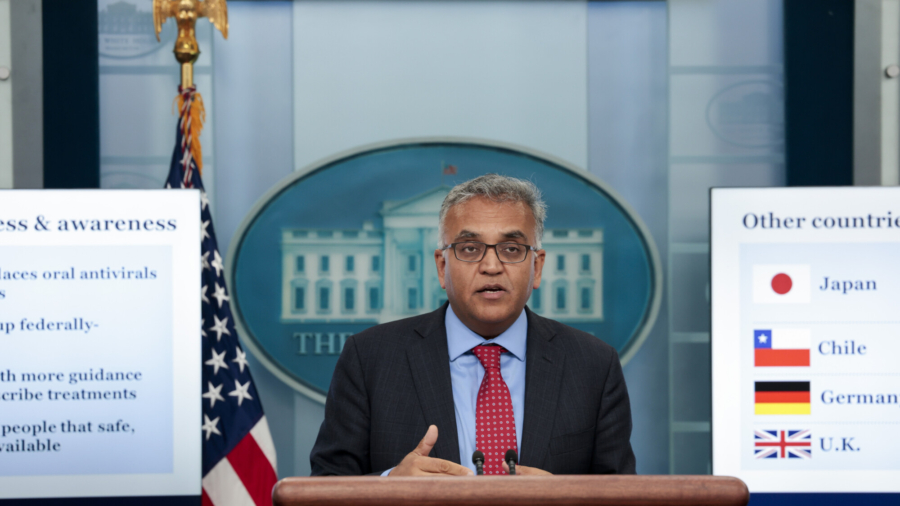People who, for whatever reason, do not want to get a Pfizer or Moderna COVID-19 vaccine can still get the Johnson & Johnson shot, a top White House health official said on May 6.
“If you have a problem with one of those two vaccines, then Johnson & Johnson (J&J) is still an option for you,” said Dr. Ashish Jha, the White House COVID-19 coordinator.
He described the J&J vaccine as “high-quality” and “very good.”
The Food and Drug Administration (FDA) a day earlier said it “limited the authorized use” of the J&J shot because of the risk of potentially fatal blood clots.
But the actual emergency use authorization, which enables people to get the vaccine, was not altered at all.
In updated fact sheets to health care providers and recipients, the agency emphasized that the vaccine can cause the clots, known as thrombosis with thrombocytopenia syndrome, within approximately two weeks of vaccination.
People 18 and older “for whom other FDA-authorized or approved COVID-19 vaccines are not accessible or clinically appropriate” can still get the vaccine, one of the sheets says. Additionally, adults who choose to get the shot “because they would otherwise not receive a COVID-19 vaccine” can still get it.
Those include “individuals who have personal concerns with receiving” the Pfizer and Moderna shots, the first vaccines built on messenger RNA technology to receive regulatory clearance.
“What the FDA is saying is, at this point, even though this is extremely rare, the bottom line is there are other options,” Jha said. “We have Moderna and Pfizer—both of which don’t have this side effect.”
However, the FDA isn’t officially limiting the J&J shot, according to Jha. Instead, regulators are “strongly recommending” people get one of the two other shots.
The FDA didn’t immediately return an inquiry.
Jha also falsely said the update from the FDA was not based on new data. The regulatory agency said in its announcement that the move was based on “an updated analysis” of cases of the blood clots following administration of the J&J vaccine that were reported to the Vaccine Adverse Event Reporting System, a passive reporting system run by the FDA and the Centers for Disease Control and Prevention.
That analysis found the reporting rate of the clots is 3.2 per million doses of vaccine administered. Overall, through March 18, 60 confirmed cases were identified, including nine fatalities.
The new determination was underpinned by the finding that the reporting rates of the condition and deaths tied to the clots “are not appreciably lower than previously reported,” the FDA said.
Other factors influencing the update include the agency not knowing what makes a person at risk for the clots and how individuals who get the clots “may rapidly deteriorate, despite prompt diagnosis and treatment.”
Jha was speaking on “CBS Mornings” and ABC’s “Good Morning America.”
Johnson & Johnson said in a statement shortly after the FDA’s announcement that data continue to support “a favorable benefit-risk profile for the Johnson & Johnson COVID-19 vaccine in adults, when compared with no vaccine” and that the company is continuing to work with authorities around the world to make sure people are warned about reports of the clots.
From The Epoch Times

